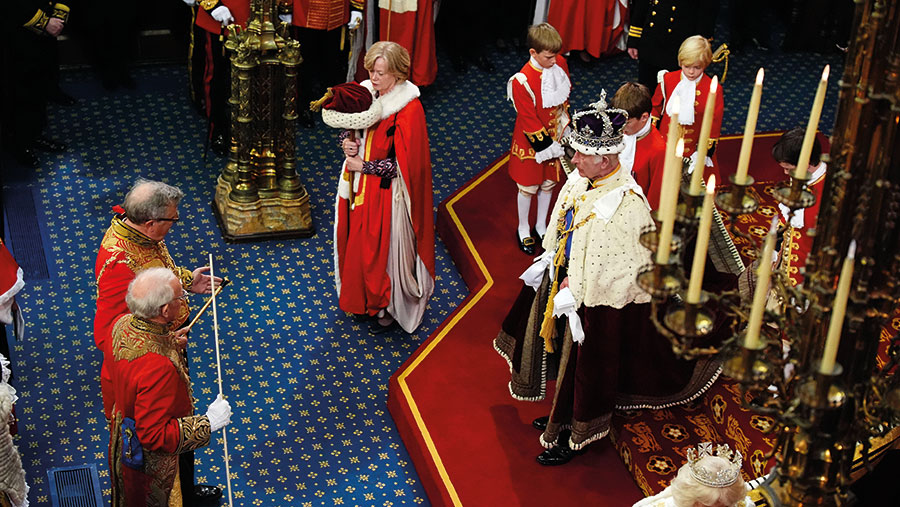NPA senior policy adviser Tom Haynes writes about the new government’s first month in power, and what it should prioritise to boost the agriculture sector.
The pomp and ceremony of any State Opening of Parliament and King’s Speech always attract a considerable amount of attention, in no small part thanks to the robes, carriages, sizeable crown and other traditions involved.
However, this King’s Speech, the first Labour State Opening since November 2009, set out a legislative programme containing 40 bills for the upcoming session.
While there are six bills that have either been carried over or reintroduced from the previous parliament, this represents the largest legislative programme since 2005.
While it is fair to say the measures announced represent a cautious and measured approach to government, the programme puts flesh on the bones of the prime minister’s five cross-government ‘missions’.
These are boosting economic growth, making Britain a clean energy superpower, tackling crime to ‘take back our streets’, breaking down barriers to opportunity and building an NHS that is fit for the future.
The first obvious point to make is that there were no mention of farming in either the speech or the supporting documentation that was published afterwards, and while that rightly makes you question what there is in the programme for farmers, there are some important things to consider.
First, many of the issues facing the sector, in particular the pig industry, don’t require primary legislation.
Two of the most pressing issues, the supply chain review and security of our borders, can be progressed through other measures, and we are pleased that work from the previous government appears, so far, to be continuing under the new administration.
With regards to fairness in the supply chain workstream, this will be brought forward through a statutory instrument (SI), a form of legislation that is signed into law by a minister.
While the election has delayed this by about six months, the draft SI is in its final stages, and we can expect this to be in law sooner rather than later.
Dover concerns
We continue to be very concerned by the levels of illegal meat coming into the UK at Dover and the weakness in the recently introduced Border Target Operating Model.
However, as part of our conversations with the new minister for food security and rural affairs, Daniel Zeichner, we were pleased he saw this as a significant priority and was keen to get down to Dover to see the state of play for himself.
Turning back to the speech, there are also a number of measures that I feel are good news for the pig industry.
Farmers are uniquely placed to help make Britain a clean energy superpower and the establishment of Great British Energy and the National Wealth Fund will make it easier for those farms that want to diversify and generate renewable energy on farm.
Equally, investment to expand the National Grid infrastructure and reforms to the planning system will remove barriers to entry for new renewable developments and reduce delays in those generators coming online.
Planning reforms
Reforms to the planning system will be a significant priority for the new government, with the Planning and Infrastructure Bill set to “make improvements to the planning system at a local level, modernising planning committees and increasing local planning authorities’ capacity to deliver an improved service”.
Any farm business that has faced delays and barriers to the planning process should find it more straightforward to engage with the local planning process, whether that involves upgrades to farm buildings or investments in diversification measures.
The new Skills England Bill should also represent good news. Skills England will work with the Migration Advisory Committee to ensure national and regional skills systems are aligned to meet skills needs, using local and regional vacancy data to provide its evidence base.
Despite farming not directly featuring in the King’s Speech, there is a lot for the sector to welcome.
However, the same cannot be said from all sides, and the cautious approach taken by No 10 has already faced criticism from some corners of the (now much inflated) Labour benches, most notably the decision not to reverse the two-child benefit cap, which sparked the first rebellion of the parliament.
The prime minister has a large majority, and he had no problem in winning this particular vote, but this could continue to plague him.
Large majorities of this kind empower fringe groups within a party. We saw this a lot in the last parliament and, with an even larger majority now, it may be a sign of things to come.




